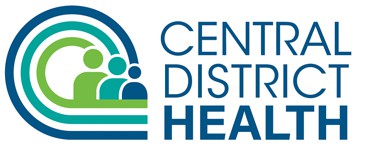BOISE, March. 3, 2025 – Santé du district central announces that a resident of their health district has died from pertussis.
The adult resident passed away from pertussis in February of 2025. While pertussis was listed as the cause of death, there were other health factors that may have contributed.
Central District Health covers Ada, Boise, Elmore, and Valley counties. The current outbreak of pertussis has been ongoing since January of 2024. There have been 574 cases of pertussis reported in the current outbreak, compared to seven cases in 2023 and two cases in 2022.
CDH recommends community members be cautious to reduce the spread of the disease. Wash your hands, cough into your arm and talk to your physician if you or your family experience a cough, runny nose, congestion or fever.
Pertussis is also known as whooping cough due to the peculiar high-pitched “whoop” sound made when the person inhales at the end of the coughing fit, although this symptom is not always experienced. Other symptoms may include a runny nose, congestion, or fever, but most people recognize it from the long-lasting cough. People may develop rapid, violent, and uncontrollable coughing fits and some may vomit after such fits due to the severity of the cough. The cough can last for months or return months after the illness first started. Pertussis is often more severe in children and those with certain underlying health conditions and can cause difficulty breathing.
“We send our heartfelt condolences to the family of this member of our community,” says Sarah Wright, epidemiology program manager at CDH. “This is a tragic reminder that the pertussis outbreak is still ongoing in our community, and that we still need to take steps to protect those in our community that are at higher risk of severe infection.”
Comment la coqueluche se propage-t-elle ?
The illness is caused by a bacterium, Bordetella pertussis, which is spread from person to person through the air after someone who has pertussis coughs or sneezes. If not diagnosed and treated with antibiotics, an individual can spread the disease for up to three weeks after their cough starts.
Les personnes qui ont été exposées à la coqueluche peuvent également prendre des antibiotiques avant de tomber malades afin de prévenir la maladie. Si vous pensez avoir la coqueluche ou avoir été exposé à la coqueluche, veuillez contacter votre fournisseur de soins de santé pour discuter des tests et du traitement.
La coqueluche peut-elle être évitée ou traitée ?
Coqueluche est à la fois évitable et traitable. Il existe un vaccin qui peut protéger une personne contre la maladie ou une maladie grave.
Immunity to pertussis begins to wane about five years after vaccination, and boosters can offer an individual more protection.
The CDC recommends two different kinds of vaccines based on age: DTaP and Tdap. The DTaP vaccine is intended for individuals two months to seven years old and is a series of five vaccines. Tdap is intended for anyone seven years or older and is usually given every five to 10 years as a booster. Both vaccines protect against pertussis, tetanus, and diphtheria.
Les femmes enceintes devraient également demander à leur prestataire de soins de santé de les vacciner ; la vaccination pendant la grossesse peut offrir une immunité au bébé jusqu'à ce qu'il soit en âge d'être vacciné. Si vous avez des questions sur vos besoins en matière de vaccination, demandez à votre prestataire de soins de santé de vous indiquer vos antécédents en matière de vaccination afin de déterminer si vous avez besoin d'un vaccin de rappel.
CDH offers the Tdap and pediatric DTaP vaccines sur rendez-vous à notre bureau de Boise.
À propos de Central District Health
Le CDH, district de santé publique IV, est l'un des sept districts de santé publique de l'État de l'Idaho, desservant les comtés d'Ada, de Boise, d'Elmore et de Valley. Avec une vision de personnes en bonne santé dans des communautés en bonne santé, le CDH met l'accent sur la réduction des facteurs de risque des maladies chroniques, l'amélioration de la qualité de vie et l'augmentation du nombre d'années de vie en bonne santé parmi les résidents.
Contact :
Stephanie Borders, responsable de la communication
Bureau : 208-327-8639 | Cellulaire 208-871-1712
sborders@cdh.idaho.gov | cdh.idaho.gov/news
Suivez @cdhidaho (FB, Twitter & Instagram)

